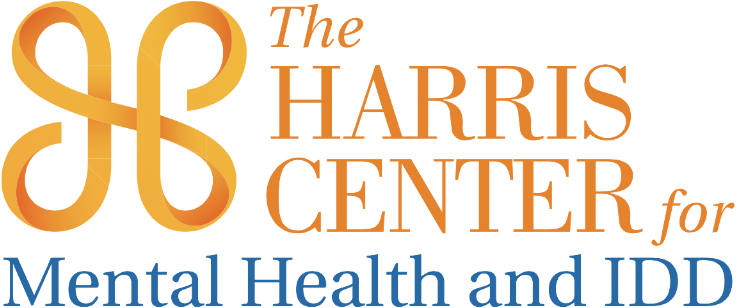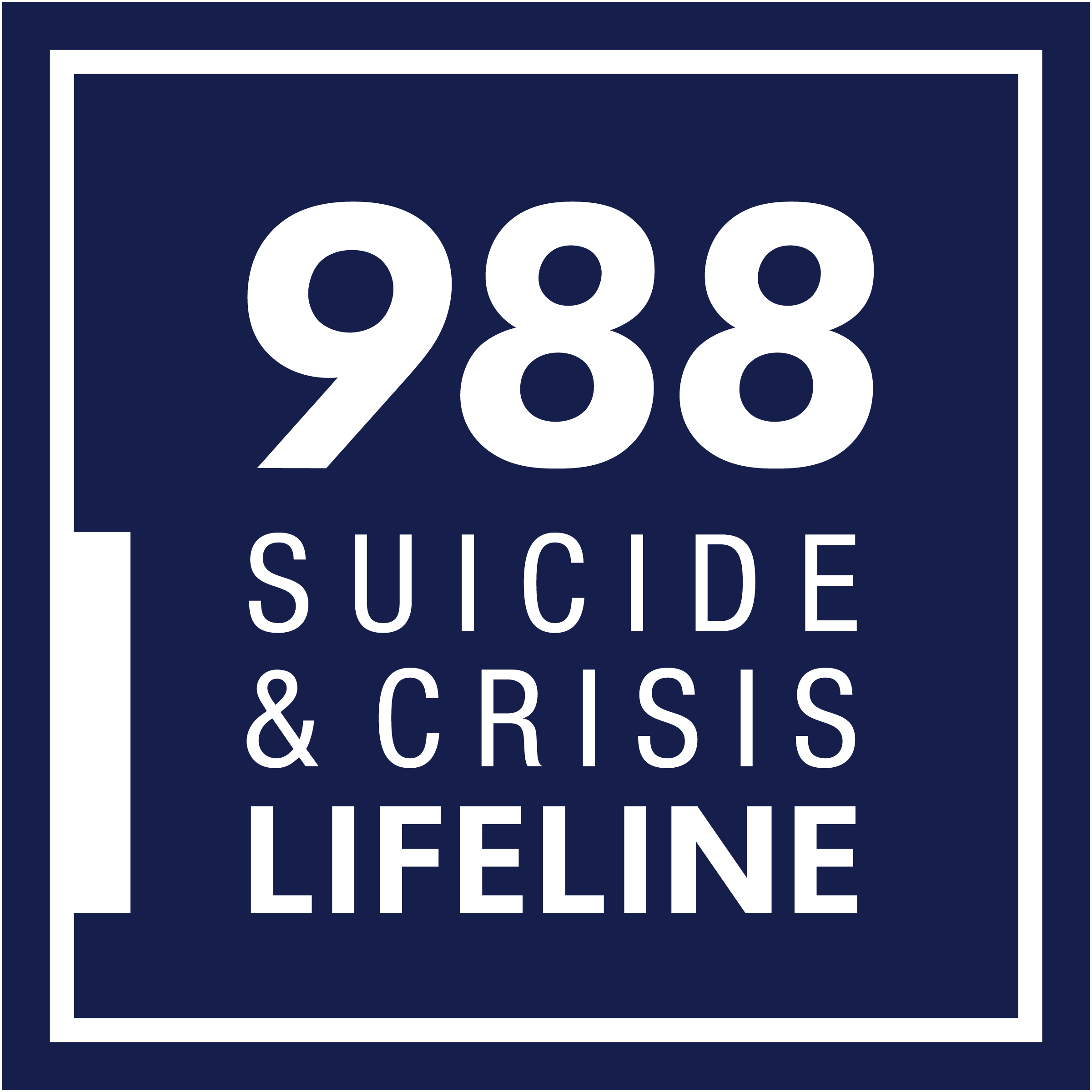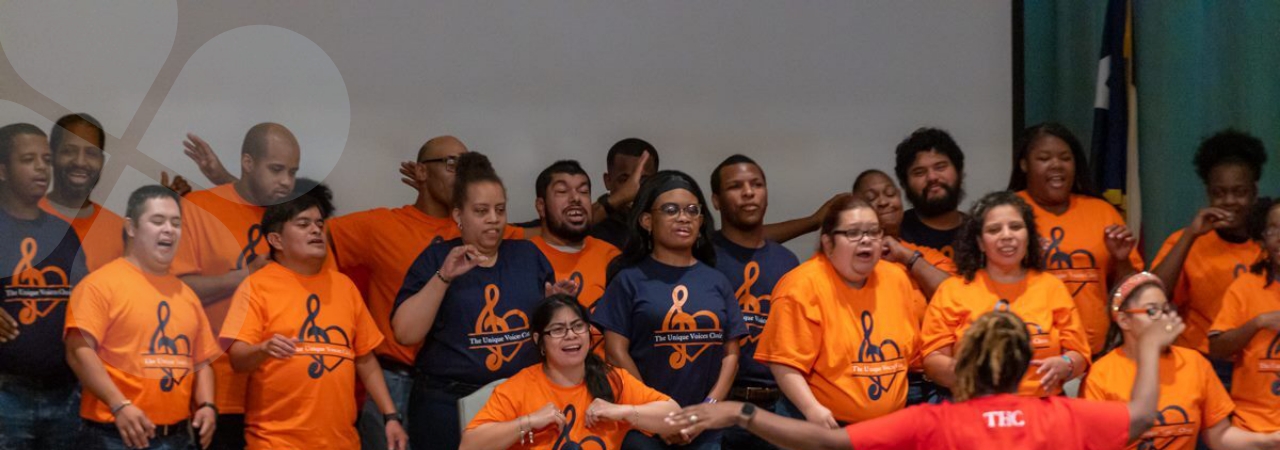
What Makes Us Different
From respite care to Home and Community-based Services to day habilitation and drop-in programs, The Harris Center assists thousands each year by coordinating caring, compassionate support for individuals with intellectual & developmental disabilities. In addition, clinicians and case managers have developed extensive community partnerships that benefit individuals with Autism, Asperger’s Syndrome, and other conditions. The Harris Center also coordinates care for those with a dual diagnosis of a behavioral illness and an intellectual or developmental disability.
Learn More

Developmental Services
Are you seeking Intellectual & Developmental Disability or Autism Services?
For more information or questions about our services, call 713-970-7799 or select the link below.
For questions about our services, scheduling appointments, and more, contact
The Harris Center Patient Access Line.
713-970-7000
Our Services

Texas Family First Prevention Services is a program that utilizes evidence-based practices including Multisystemic Therapy (ages 12-17) or High-Fidelity Wraparound (ages 0-17) to aid in strengthening families so children can safely remain with their parents and caregivers. Referrals are received through Texas Department of Family and Protective Services (DFPS) and services are provided to the family in the community and/or home.
Services:
- Multisystemic Therapy (MST) - a community-based, family-driven treatment for antisocial/delinquent behavior in youth with a highly structured clinical supervision and quality assurance process. MST focuses on empowering caregivers/parents to solve current and future problems. The MST client is the entire ecology of the youth - family, peers, school, and neighborhood.
- High Fidelity Wraparound - a strength-based approach, which focuses on the strengths and resilience of each family rather than their deficits. This approach highlights what is already working well within the family, helping each member to see their own value and potential. By building on these strengths, families experience positive changes in how they see themselves, communicate, and interact with one another, leading to improved outcomes for everyone involved.
The Coffeehouse program is a peer-focused social skills and communication group training group for adults 18 years of age or older with Autism Spectrum Disorder and/or Intellectual Disability that reside in Harris County. The program facilitates employment and full community integration through increasing interpersonal communication, independence, and social skills.
Services:
- Face-to-face or telehealth participation in group discussion
- Assistance, support, and training to acquire, retain, or improve self-help, socialization, and adaptive skills.
- Supported participation in home and community life.
- Face-to-face or telehealth spent in evaluations/assessments with a specific individual (with or without their representative’s present) related to the provision of day habilitation.
- Participation in service planning team meetings to develop social skills
Testimonial:
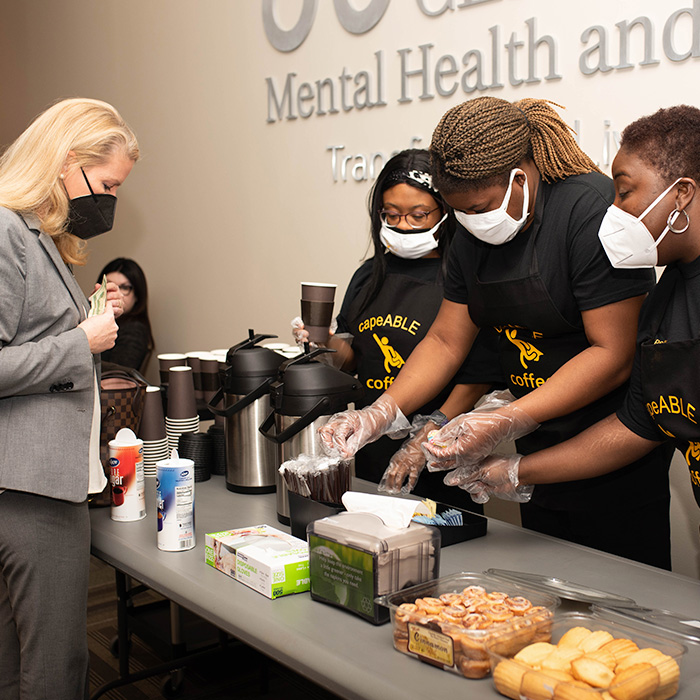
Community First Choice (CFC) is a Texas Medicaid that offers home and community-based attendant services and supports to children and adults with disabilities with activities of daily living. The Harris Center serves as a liaison to connect families with individuals that have disabilities with CFC services.
Services:
- Activities of daily living (eating, toileting, grooming, etc.)
- Independent living and personal care services
- Emergency/crisis response
- Support management

IDD Crisis Intervention provides crisis triage, assessment, linkage to appropriate internal and external services, consultation with consumers/caregivers/providers, and community training. Services are provided up to 30 days for individuals age 3 years or older with an Intellectual Disability and/or Autism who are experiencing a crisis in Harris County. Services may be provided via telehealth or in the community or residential setting.
Services:
- Needs assessment
- Linkage to IDD resources
- Brief psychoeducation as needed

Community Based Supports (CBS) provides crisis Applied Behavior Analysis (ABA)/behavioral support, care coordination, and nursing services in the community for an average of 30-90 days. CBS are available for individuals ages 3 years or older who live in Harris County and are experiencing a high intensity of self-injurious behavior, physical aggression, property destruction, and/or elopement. The treatment plan is reviewed with the consumer/caregiver/LAR at least every 90 days. CBS may also include caregiver training. Services are provided via telehealth or in the community (e.g., family's residence). Services are not provided in the school setting.
Services:
- Intake assessment
- Treatment plan and behavior support plan
- Caregiver training
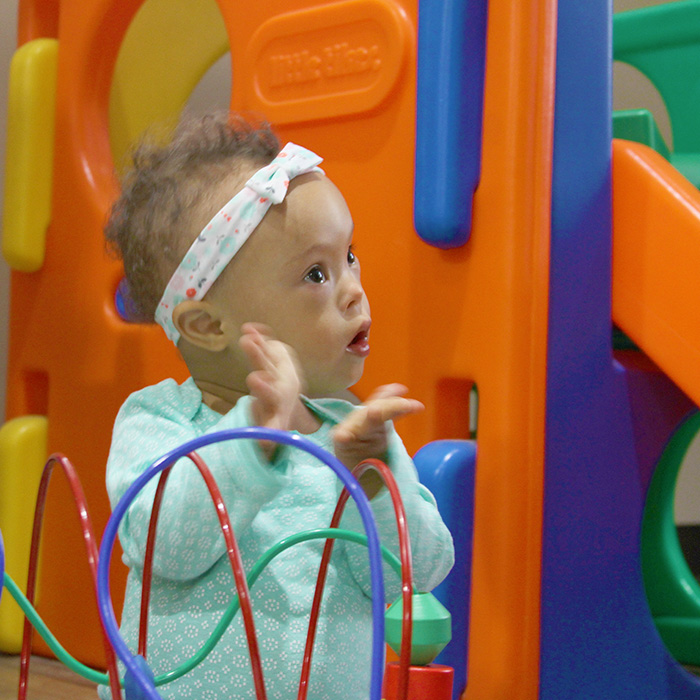
The Harris Center provides Early Childhood Intervention (ECI) services for children up to age 3 with developmental delays, disabilities, or certain medical diagnoses that affect development. ECI provides support and coaching to families to help their child learn and grow. Referrals for ECI services are accepted through parents, doctors, social services agencies, DFPS, schools, and other community referral services.
ECI is a statewide program under the Texas Health and Human Services Commission.
Services:
- Early intervention services for children under the age of 3
- Case management
- Service coordination
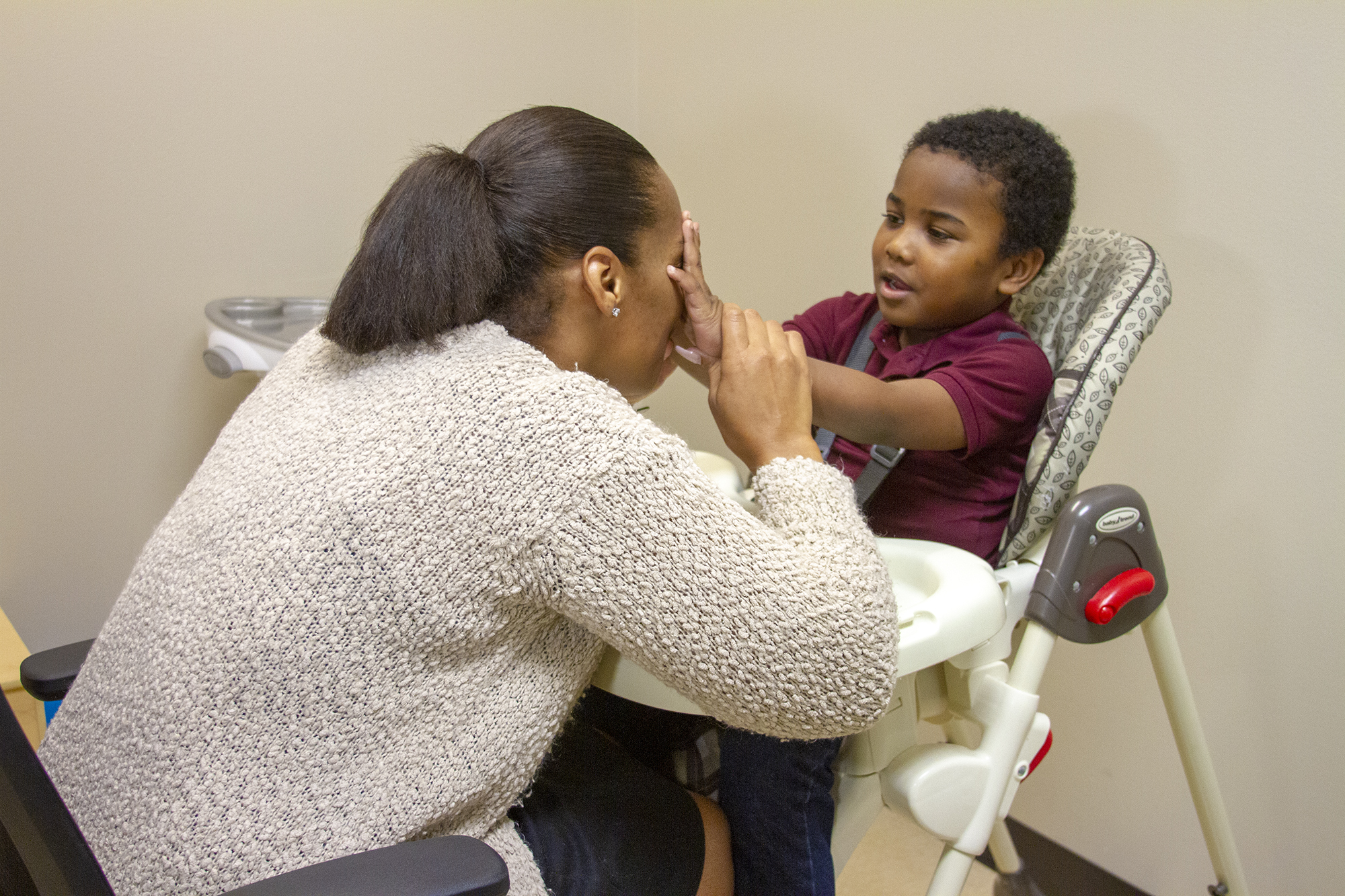
The Feeding Disorder program at The Harris Center provides feeding therapy to individuals who are at least 9 months old that are struggling with any of the following feeding difficulties: food and/or liquid refusal, texture or type selectivity, refusal to self-feed, or general mealtime problem behavior that negatively impacts their nutritional status. The program provides feeding therapy for individuals ages 9 months - 18 years for 1-2 times per week. The program also includes family and caregiver training to support the individual's needs identified by the needs assessment. A family member or caregiver must be present in every feeding therapy session to learn feeding procedures. Services may be provided in-person or via telehealth with a licensed clinician.
Services:
- Intake assessment
- Individualized treatment plan for feeding difficulties
- Family/caregiver training
- Behavior support plan (if needed)

Intermediate Care Facilities for Individuals with Intellectual Disability (ICF-IID) provide 24-hour residential services for adults with intellectual disabilities or related conditions. Residents have access to comprehensive and individualized services and supports in their local communities including, primary and specialty medical care, vocational and employment services, adaptive aids, and planned activities such as shopping, dining out, and going to movies and other recreational and leisure activities. Most community-based ICFs-IID across Texas may accommodate up to six people. The Harris Center currently has 5 ICF locations.
Services:
- Residential
- Primary and specialty medical care
- Vocational services
- Activities in the community
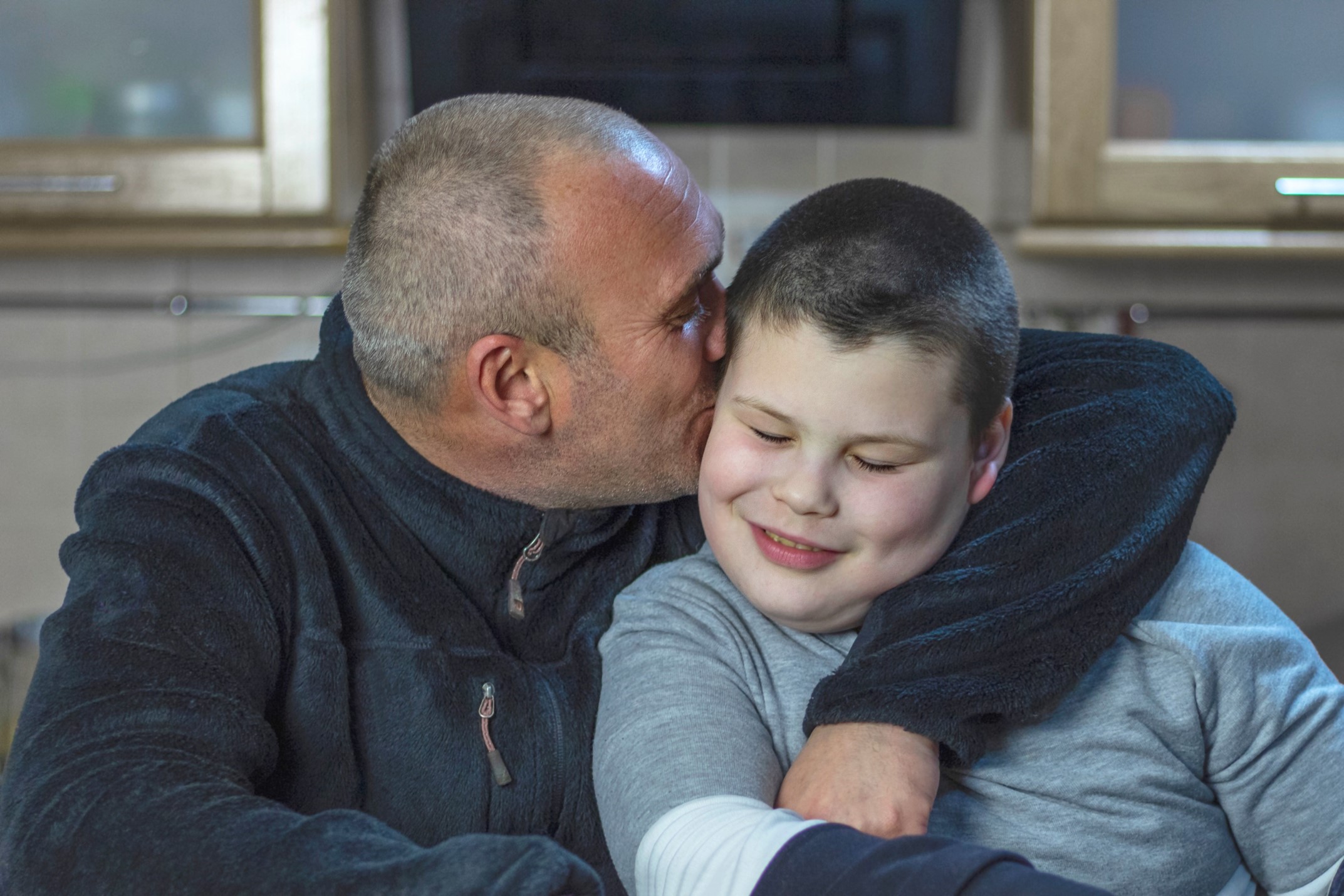
Outpatient Biopsychosocial Approach for IDD Services (OBI) provides outpatient mental health (MH) services for individuals with Intellectual and Developmental Disabilities (IDD) and MH needs. Individuals undergo an initial screening to determine if OBI is appropriate. A treatment plan is developed with the caregiver and individual for individuals who are eligible for OBI. OBI at The Harris Center uses a holistic approach to address medical, psychiatric, and behavioral health needs. OBI also includes specialized skills training and education.
Services:
- Initial screening
- Biopsychosocial assessment (BPS)
- Treatment plan to address medical, psychiatric, and behavioral health needs
- Skills training (e.g., behavioral support, social skills, emotional regulation, employment readiness, etc.)
- Caregiver and family training
- Education and training on co-occurring IDD and mental health conditions
The Positive Behavior Supports (PBS) program is designed to support individuals ages 3 or older with IDD and/or Autism who experience frequent behavioral issues that negatively impact their daily lives. The PBS team includes a Board-Certified Behavior Analyst (BCBA’s) and ABA Specialists that design a treatment plan to address behavioral concerns. Treatment plans are reviewed at least every 90 days. Behavioral concerns addressed by the PBS program include (but not limited to): physical aggression, self-injurious behaviors, verbal aggression, property destruction, tantrums, elopement, non-compliance with directions, pica, and toilet training. Referrals for PBS come through the IDD Service Coordination and Eligibility Center at The Harris Center. A Legally Authorized Representative (LAR) must be present for all sessions. Services may be provided in the community (family's home) or via telehealth. Services may not be provided in schools.
Services:
- Intake assessment
- Treatment plan and behavioral support plan
- Parent and caregiver training
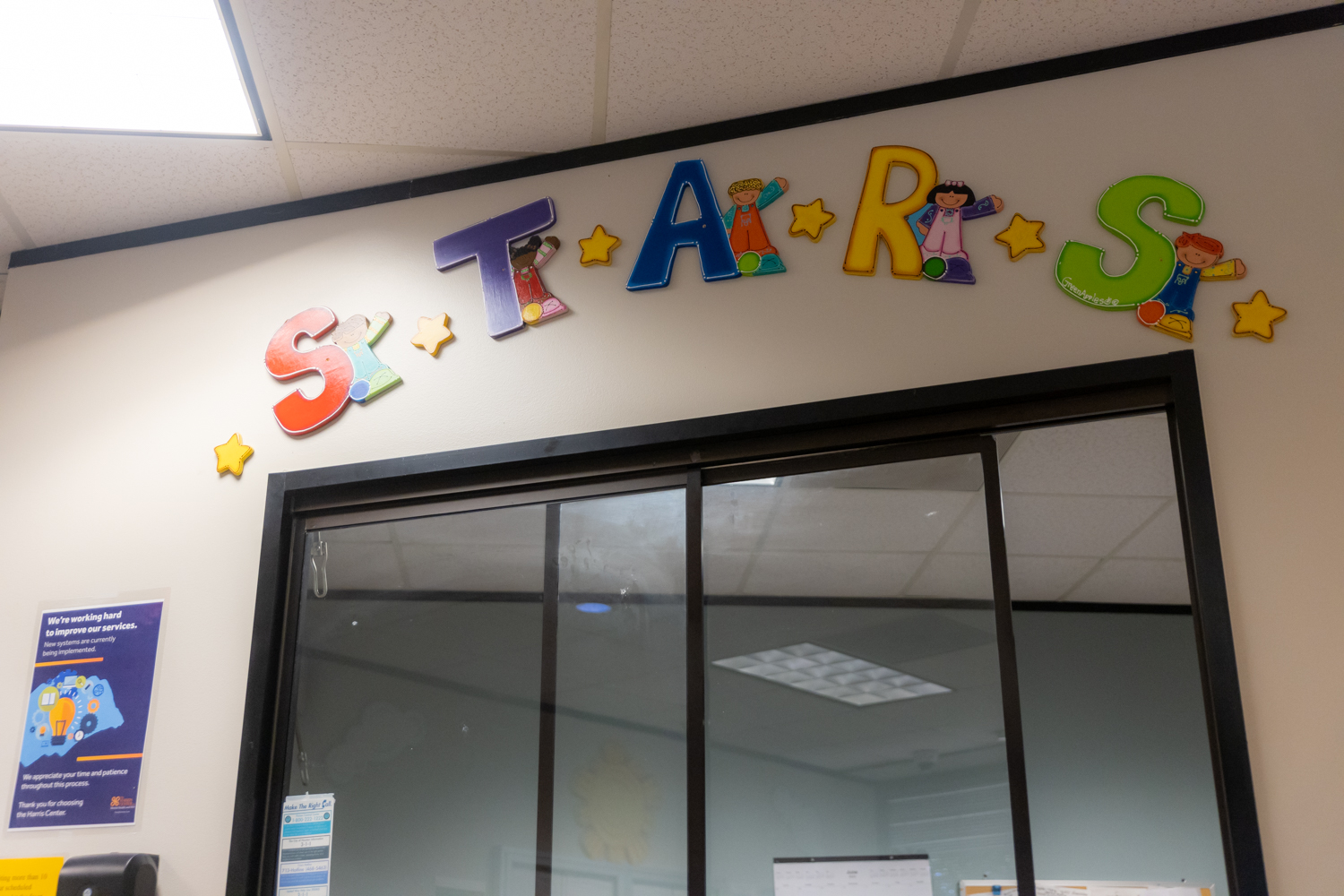
The Specialized Therapies and Rehabilitative Services (STARS) Clinic at The Harris Center provides behavioral, psychological, and counseling services to children and adults ages 3 years or older with IDD and/or Autism, feeding disorders, or severe behavioral concerns. Services are designed to address concerns such as anxiety, anger, stress management, bullying, grief and loss, trauma, self-esteem, chronic health conditions, relationship concerns, and/or occupational concerns. Eligible individuals must be residents of Harris County and able to participate in talk therapy. Referrals for the STARS Clinic come through the IDD Service Coordination and Eligibility Center at The Harris Center, where a service coordinator will authorize specialized therapy as part of the individuals Person Directed Plan (PDP).
Services:
- Individualized treatment plan
- Behavioral therapy
- Feeding therapy
- Psychological and counseling services
- Family and caregiver support (if needed)
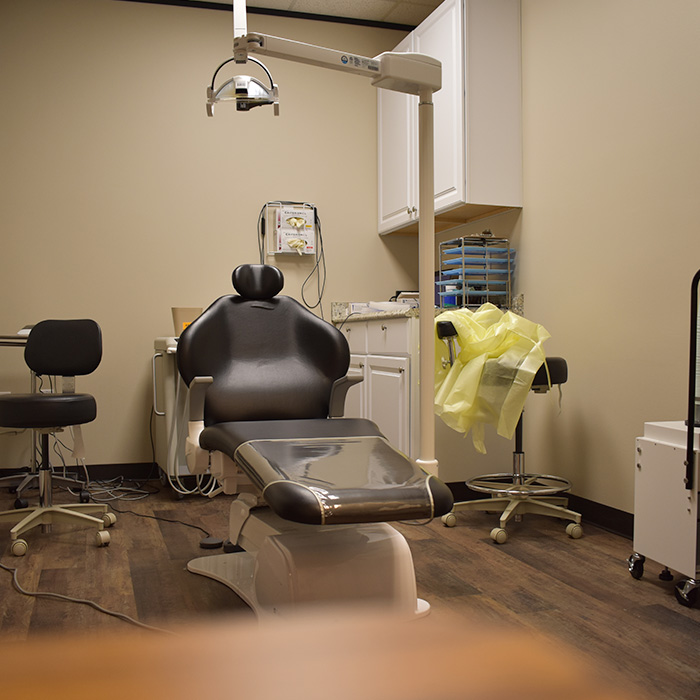
Texas Home Living (TxHmL) is a Medicaid waiver program that provides supports for individuals with IDD who live in their family homes or their own homes. TxHmL services are intended to supplement rather than replace services received from other programs, such as Texas Health Steps, or from natural supports, including families, neighbors, or community organizations. The Harris Center serves as a liaison to connect families with TxHmL services in Harris County. Services include enrollment in Home and Community-Based Services (HCS) for eligible individuals.
Services may include:
- Day habilitation
- Respite services
- Employment services
- Nursing services
- Dental services
- Behavioral support Community support (transportation)
- Occupational therapy
- Physical therapy
- Speech therapy
- Audiology services
- Dietary services
- Minor home modifications
- Adaptive Aid
Experiencing a Crisis Situation?
If you or the individual is experiencing a crisis situation, click here to fill out our Contact form.
A Crisis situation is defined as the following:
- An individual is in danger or at risk of losing his or her support system, especially the living arrangement or supports needed to maintain self;
- An individual is at risk of abuse or neglect;
- An individual's basic health and safety needs are not being met through current supports;
- An individual is at risk for functional loss without intervention or preventive or maintenance services; or
- An individual demonstrates repeated criminal behavior.
IMPORTANT: CALL: 911, if you or the individual is a physical danger to one's self or others.
If you are not a Harris County resident, click here to find your LIDDA.
